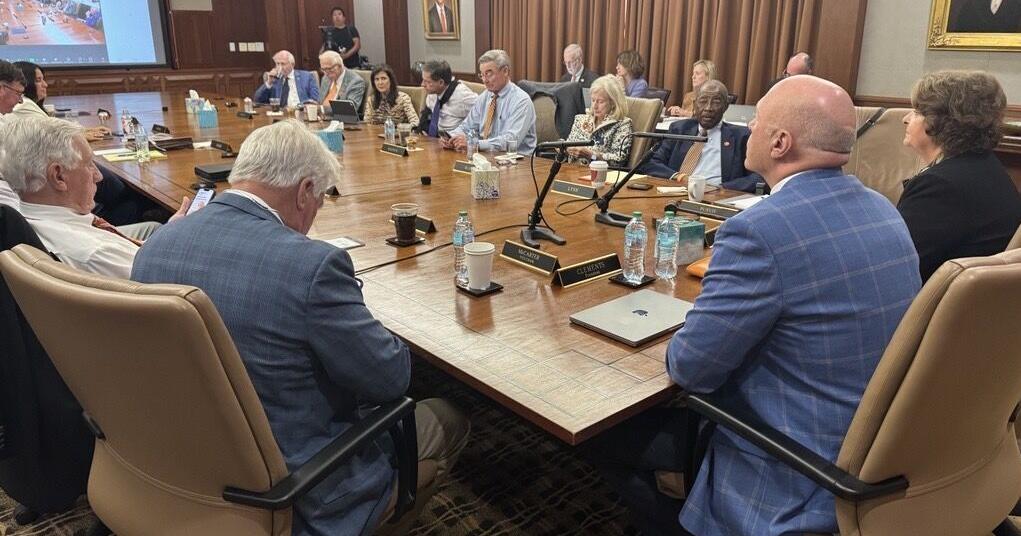
Clemson University made the correct decision when it fired three employees who made social media posts celebrating the assassination of conservative political activist Charlie Kirk, and it would be appropriate for other employers to do likewise.
For too long, people have felt like they could say anything on social media without any consequences. Often they’ve been right. Sometimes they’ve learned the hard way that they can’t, as college students didn’t get jobs after would-be employers reviewed images of their drunken public antics and grown-ups got fired after criticizing their boss, strangers or political figures. The problem is the result of society moving too quickly from a place where few people’s comments were heard beyond a handful of people to one where everybody has a megaphone that can reach nearly every corner of the planet — and of algorithms that encourage anti-social behavior on what is oxymoronically called social media.
As we argued after some public employees came under fire for disparaging and even threatening people protesting George Floyd’s death, the widely misinterpreted freedoms guaranteed in the First Amendment certainly don’t prevent businesses and shouldn’t stop government agencies from disciplining and even firing their employees who post vile comments that could reflect badly on their employers.
The rules are pretty simple, and they reflect what nearly everyone across the political spectrum used to recognize as common decency: You don’t encourage or endorse violence by anyone against anyone. You don’t applaud the death, injury or misfortune of anyone. And while speaking ill of someone in the immediate aftermath of his death is in a very different category, it’s still bad manners, and it still can injure any entity the speaker is affiliated with.
After any event that causes widespread trauma, it’s best to follow the classic advice mothers give their children: If you can’t say something nice about someone, don’t say anything. And yes, that applies even to politically influential people who advocated for what you consider evil policies — maybe especially to them.
Of course, we’d much prefer that Clemson’s decision had been made without all the implicit and explicit funding threats from legislators, gubernatorial candidates and members of Congress. There is, after all, a difference between an employer that happens to be a government agency firing someone, and other government officials pressuring public or private employers to act.
We’d feel better too if all those public officials demanding action against vile statements regarding Mr. Kirk’s murder would acknowledge that this isn’t the first time people have acted like jerks on social media — or that such behavior is not limited to one end of the political spectrum. Indeed, the liberal cancel culture that wanted to punish speech, oh, last year can’t hold a candle to GOP elected officials now demanding that leftist radicals be punished for their posts about Mr. Kirk. U.S. Rep. Nancy Mace initially called on U.S. Education Secretary Linda McMahon to “cut off federal funding from any elementary, secondary, and post-secondary educational institution refusing to hold teachers or administrators accountable for celebrating the murder of Charlie Kirk.” Lt. Gov. Pamela Evette urged less severe actions but also tied them solely to Mr. Kirk, while in Washington, politicians are calling to revoke visas and even prosecute people who celebrated Mr. Kirk’s murder.
We’re fine with using this as a catalyst for exploring what if any responses are appropriate for governments to take over extreme incivility by people who aren’t their employees, but any such responses should apply to any people who celebrate the murder of anyone, regardless of the victim’s politics.
Of course, if there’s anything politicians in both political parties are good at, it’s hypocrisy. The bigger issue is what society considers acceptable behavior in public — whether at a town hall or a protest march or, most significant because of its much broader reach, on social media.
While Attorney General Alan Wilson appropriately promised that Clemson and other colleges wouldn’t be prosecuted for firing uncivil employees, we’re still concerned about the state law that encourages lawsuits against and even prohibits anyone — including private businesses and nonprofits — from firing people based on their political beliefs. There is no justification for that sort of invasive policy toward private businesses and non-profits, and depending on the circumstances, we’re not convinced it should even apply to government. At the least, the Legislature should limit this law to actions by government entities.
We also reject the idea that firing professors for celebrating violence could threaten their academic freedom. Academic freedom, which predates social media by many decades, was intended to allow professors to take unpopular positions in matters related to their area of expertise. It was not about shielding them from accountability when they spout off whatever emotional response they have to the day’s news on social media. If Clemson or any other institution of higher education has tenure policies or contract language so broad as to include hot takes on social media, it needs to change that language now.
We absolutely need to protect real academic freedom, and we need to encourage everyone to engage in vigorous political debate. But we don’t need to encourage people to be jerks, and we do need to remember that the First Amendment doesn’t mean you can’t get fired or face other consequences for being a jerk. It simply means, appropriately, that you can’t get convicted and jailed or fined for being a jerk.



